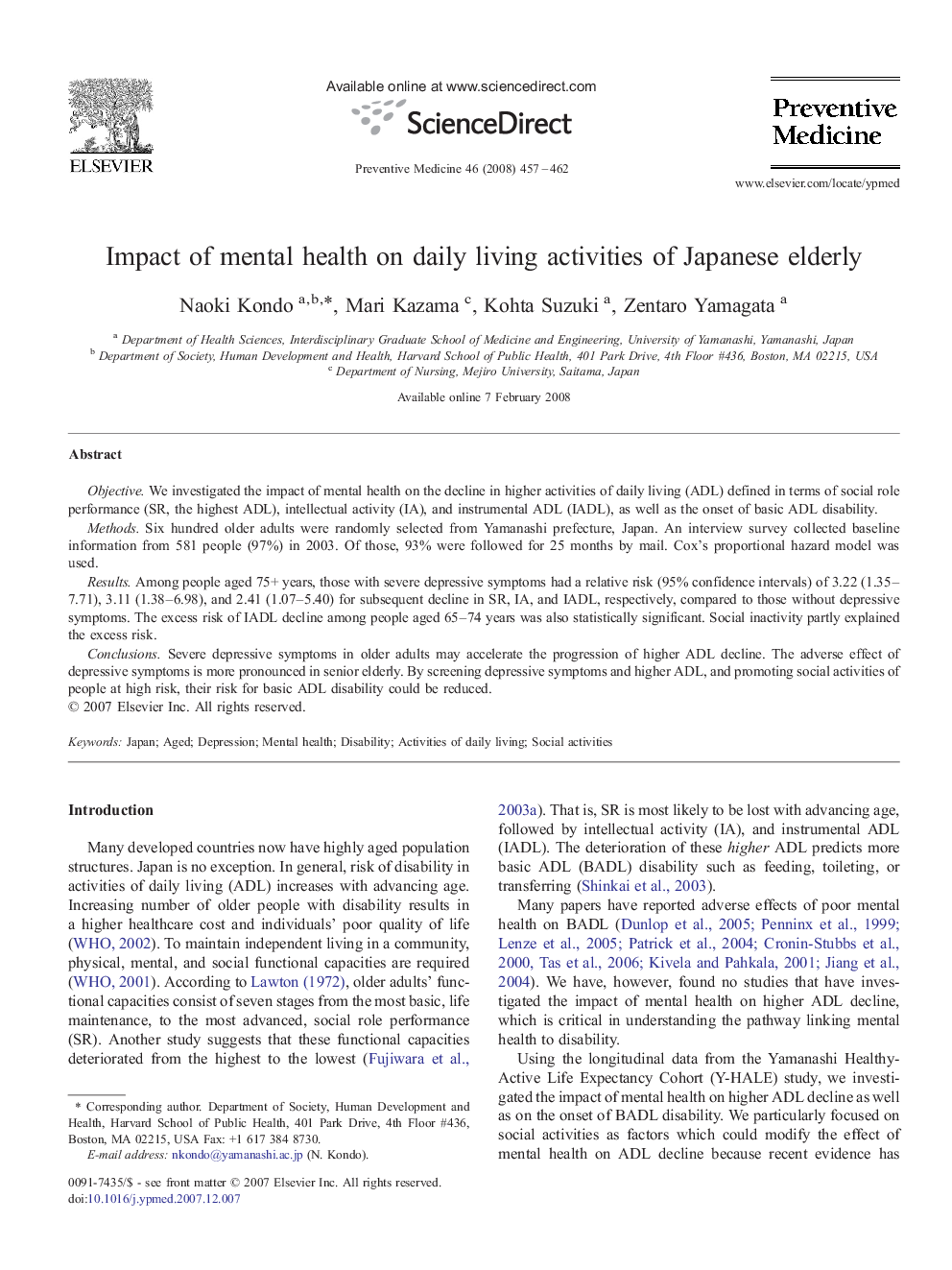| Article ID | Journal | Published Year | Pages | File Type |
|---|---|---|---|---|
| 3101711 | Preventive Medicine | 2008 | 6 Pages |
ObjectiveWe investigated the impact of mental health on the decline in higher activities of daily living (ADL) defined in terms of social role performance (SR, the highest ADL), intellectual activity (IA), and instrumental ADL (IADL), as well as the onset of basic ADL disability.MethodsSix hundred older adults were randomly selected from Yamanashi prefecture, Japan. An interview survey collected baseline information from 581 people (97%) in 2003. Of those, 93% were followed for 25 months by mail. Cox's proportional hazard model was used.ResultsAmong people aged 75+ years, those with severe depressive symptoms had a relative risk (95% confidence intervals) of 3.22 (1.35–7.71), 3.11 (1.38–6.98), and 2.41 (1.07–5.40) for subsequent decline in SR, IA, and IADL, respectively, compared to those without depressive symptoms. The excess risk of IADL decline among people aged 65–74 years was also statistically significant. Social inactivity partly explained the excess risk.ConclusionsSevere depressive symptoms in older adults may accelerate the progression of higher ADL decline. The adverse effect of depressive symptoms is more pronounced in senior elderly. By screening depressive symptoms and higher ADL, and promoting social activities of people at high risk, their risk for basic ADL disability could be reduced.
